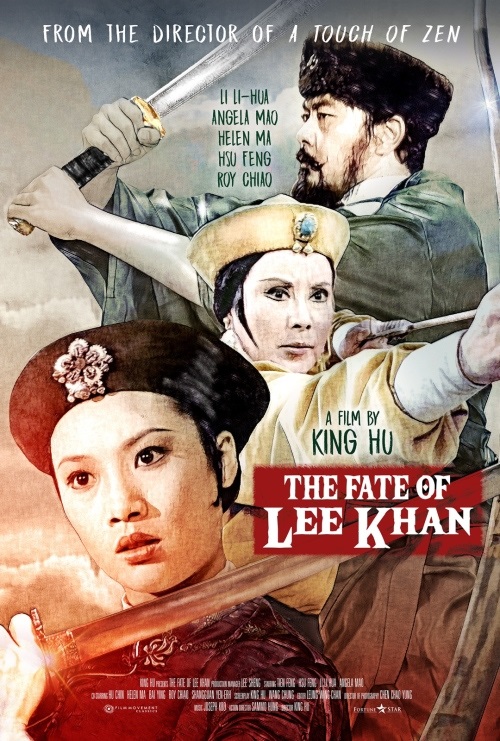The Fate of Lee Khan (1973)

After the epic grandeur of A TOUCH OF ZEN King Hu returned to what he knew best for a smaller scale film - inns, intrigue and feisty fighting females. The plot follows a similar path to Dragon Gate Inn - a bunch of rebels and a powerful official converge on a remote inn and engage in a battle of wits that eventually becomes a battle of swords.
The film feels a bit smaller in scale because it mostly takes place inside the inn - there are far fewer scenes of Taiwan's rugged beauty. On the other hand the cast is enlarged, e.g. by a quartet of kung fu waitresses brought in by the inn keeper in preparation for the arrival of the titular Khan.
The film is neatly divided into two halves, the first featuring a depiction of daily life in the inn and introducing the various characters. This is quite light-hearted and breezy. Then at the mid-point Lee Khan arrives and the film shifts into a different phase. The customers are kicked out and Khan's retinue begin interrogating the staff to look for any rebel tendencies.
King Hu deftly choreographs the large cast in the compact, busy space. The characters are introduced with a minimum of exposition, we learn who they are through their encounters (well, except for the waitress in green, Shang-Kuan Yan-Erh, who isn't given much to do and feels a bit unneeded).
There is significantly less action than in Dragon Inn, but with Sammo Hung as choreographer what there is feels more impactful - though there are still plenty of trampolines in play, and Angela Mao doesn't get to go as hard as she did in Hapkido. Relieved of responsibility for the action, Han Ying-Chieh reveals an unexpected musical side.
This was the first King Hu film I saw, and probably the earliest martial arts film I'd seen without Bruce Lee in it thanks to an uncharacteristic VHS release from the UK's Made In Hong Kong label. At the time I wasn't all that impressed as it felt very slow & a bit clunky compared to the wild wuxia of 80's and 90's Hong Kong... and it is, even compared to some of its contemporaries in fact, but it has its own charms.
The film doesn't actually do a particularly good job of convincing us that Lee Khan needs to be defeated, he seems like an educated man who takes a dim view of the corruption of local officials. He can be a little ruthless, but he doesn't seem especially evil or despotic. The film places us firmly on the side of the rebels though, so I guess the fact they want Lee Khan gone will have to do.
And what is the fate of Lee Khan, you might ask? Well, nothing you won't be expecting.
Cast
Crew
| Director | |
|---|---|
| Action Director | |
| Writer | |
| Producer | |
| Assistant Director | |
| Cinematographer | |
| Editor | |
| Soundtrack |

